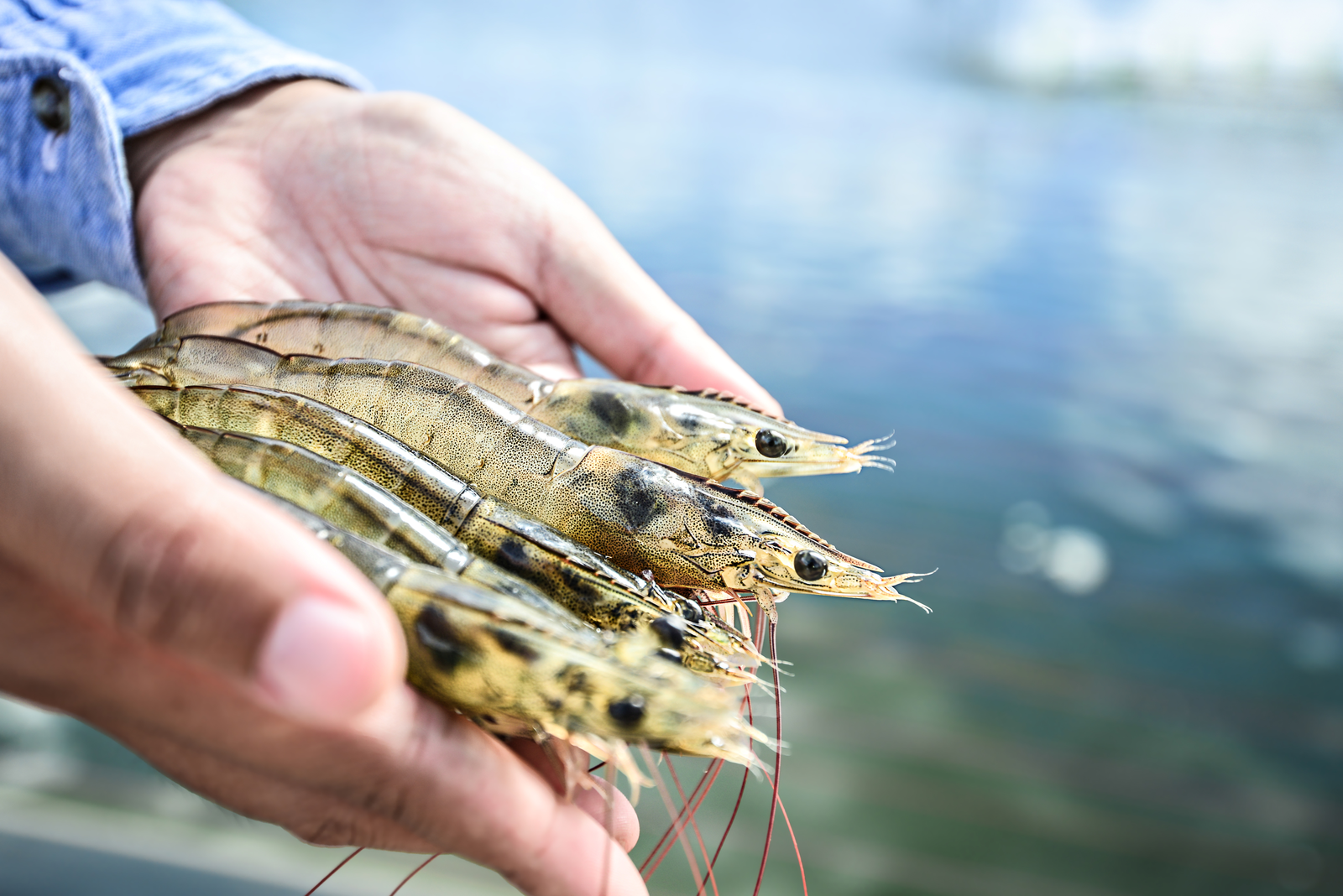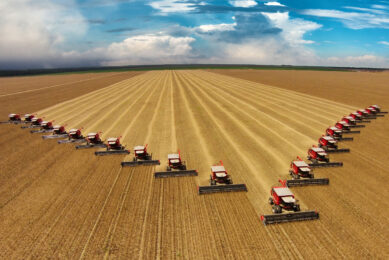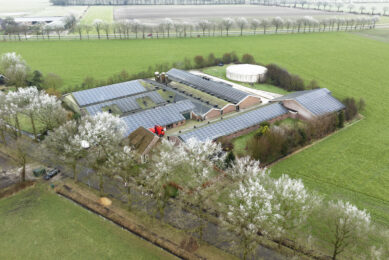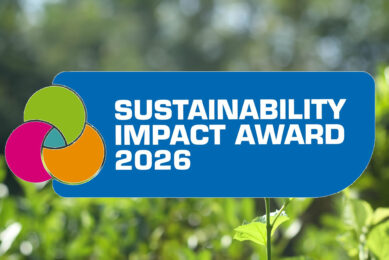From by-product to high quality insect protein

Insect protein and oil are sustainable, cheap and high quality ingredients. In addition, insects are part of a natural feeding regime of many animal species. According to the company Entofood, these novel ingredients are ideal substitutes for fishmeal.
Fishmeal is becoming scarce and is criticised for not being sustainable. At the same time, current protein sources such as soy are becoming more expensive. This is why many companies are looking for protein alternatives to make animal feed more sustainable and affordable for farmers. At the same time, animal diets should deliver all the nutrients and building blocks the animals need to be able to produce at a high level. The company Entofood, based in Malaysia, is one of the pioneers in finding new protein ingredients for food producing animals and fish species. This company has developed a bioconversion technology to process organic side streams into insect-based products and bio-fertiliser. With this technology, the company is able to make use of large-scale bioconversion technology using detritivorous insects, enabling production of innovative and highly sustainable protein and oil for aquaculture and livestock feeds. Detritivorous insects obtain nutrients by consuming organic by-products (decomposing plant and animal parts). The high protein insect meal is an ideal alternative to fishmeal, which is a key component of aquaculture and animal feed, accounting for a huge import bill. This raw material is becoming scarce and is produced only by a few operators around the globe.
Also read the All About Feed Whitepaper: Why are insects not allowed in animal feed?
From by-product to insect biomass
The bioconversion technology developed by Entofood is able to process food waste and organic side streams through biological activity of Hermetia illucens (Black Soldier Fly). The technology is capable of transforming the organic by-products into insect biomass in an extremely short period of time (seven days). Insect biomass can be further processed into protein and fat. Besides, the insect frass is valorised as organic fertiliser. This technology enables 100% recycling without producing any waste. The whole operation is conducted in a controlled indoor environment. From an organic side stream, 25% is converted into larvae biomass. This biomass will then lead to 8.7% whole insect meal, hence the split into 6.3% defatted insect meal and 2.4% insect oil. Since August 2012, a pilot farm was built and has been operating in Malaysia (Kuala Lumpur). This pilot farm made it possible to improve, along the time, feeding regimes, breeding procedures, etc. During this period, growth and FCR were improved by more than 30% and grow-out can now be completed in 6 to 7 days, compared to 10 days initially. Significant improvements were achieved in broodstock performances and pupation outputs. The data gathered on the pilot farm is needed to be able to launch a large-scale operation in the future. Entofood will upscale by the end of 2015 from 100 kg to 20 tonnes of larvae biomass per day.
Also read: Insects in feed: new insights published
Trials and perspective
Entofood held some successful trials in livestock in partnership with a university. Various inclusion rates of insect meal in broiler chicken diets enhanced the growth performance (growth rate and feed conversion ratio) and resulted in a better meat texture and colour. More trials are currently running where the inclusion of live larvae is tested in organic and free-range poultry. Those trials will lead to off-take contracts. In South East Asia, trials have been done in farmed barramundi. In the young fish (from 30 grammes), one third of the fishmeal in the diet was replaced by the insect protein (insect meal). The fish showed similar protein efficiency, similar growing performances and a same FCR than the control group (that received high grade fishmeal). Entofood also conducted feeding trials on grouper fingerlings, salmon and shrimp. Growing trials in L. Vanamei shrimp already showed that half of the fishmeal could be replaced successfully. Three third of replacement and full replacement of fishmeal with insect protein is the next step in these shrimp trials.
Also read: Latest research on insects for animal feed
Legislation not the same everywhere
The results are promising, but the use of insect protein is not common around the world and current legislation hinders its inclusion in food producing animals in some parts of the world. At the moment, the use of insect meal in animal feed is prohibited in Europe, whereas the purified fat from the larvae is already allowed in animal diets. Insect is still a prohibited protein due to different feed safety and quality regulations such as TSE. But there is another strong restraint: the regulation covering the substrate on which insects can be reared. The International Platform of Insects for Food and Feed (IPIFF) is asking for the revision of the EU feed legislation in order to allow insect products reared on 100% vegetable substrates to be used as sources of proteins for aquaculture, poultry and pigs. Some believe that legislation will be amended in 2015, but this is still not confirmed. In Malaysia, Entofood is able to use its products for trials. From this country, where the production facilities are based, the company is also allowed to send the insect products to several countries for trials. The agreement for defatted insect meal and insect oil for local use is in process and will be allowed before the end of 2015.
Quality of the products
The feed regulatory framework in Europe and in Asia has already evolved and will continue to evolve in the years ahead. This is needed, as we need to feed a growing world population without jeopardising natural resources. Insect derived ingredients for animal feed can be part of the solution. However, the process needs to develop further and the key elements are the biosecurity and the quality of the substrate on which insects are reared. Insect rearing companies therefore need to pay close attention to traceability and quality control of the raw material supply and hence the quality control of the end products. Entofood traces all the raw materials and carries out routine monitoring. This entails checking the microbiology (E. coli, Salmonella, Enterobacteria) and heavy metals in the larvae.

About Entofood company
The Entofood project was initiated in 2010 in Madagascar. R&D continued in Malaysia to study and optimise zootechnical performances of the Black Soldier Fly, nutritional profiles of the insect-based products and gain acknowledgment in their application in livestock and aquaculture. Since then, Entofood Company manufactures insect-based products (protein and oil) as highly sustainable alternatives for fishmeal substitution. Entofood Company has been awarded with the BioNexus status by the Malaysian Biotechnology Corporation (BiotechCorp) in 2013. The leading team consists of Frédéric Viala, president and COO. During his career he has created several companies and has sharpened his leadership skills and proficiency in various fields: technology and engineering, finance, computer science and logistics. Franck Ducharne, CEO and Biologist, graduated from IEMVT – a veterinary school in Maisons-Alfort (France). He specialised in invertebrate culture, particularly silkworm and shrimp. He has worked in shrimp production as a project development manager in various countries (Guatemala, Madagascar, SE Asia) for more than 16 years.











